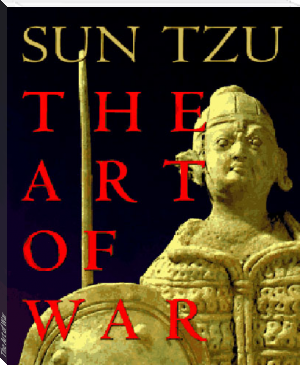The Art of War - Zi Sun (best books to read for success .txt) 📗

- Author: Zi Sun
- Performer: 0976072696
Book online «The Art of War - Zi Sun (best books to read for success .txt) 📗». Author Zi Sun
11. If the enemy has occupied them before you, do not follow him, but retreat and try to entice him away.
[The turning point of Li Shih-min's campaign in 621 A.D. against the two rebels, Tou Chien-te, King of Hsia, and Wang Shih-ch`ung, Prince of Cheng, was his seizure of the heights of Wu-lao, in spite of which Tou Chien-te persisted in his attempt to relieve his ally in Lo-yang, was defeated and taken prisoner. See CHIU T`ANG, ch. 2, fol. 5 verso, and also ch. 54.]
12. If you are situated at a great distance from the enemy, and the strength of the two armies is equal, it is not easy to provoke a battle,
[The point is that we must not think of undertaking a long and wearisome march, at the end of which, as Tu Yu says, "we should be exhausted and our adversary fresh and keen."]
and fighting will be to your disadvantage.
13. These six are the principles connected with Earth.
[Or perhaps, "the principles relating to ground." See, however, I. ss. 8.]
The general who has attained a responsible post must be careful to study them. 14. Now an army is exposed to six several calamities, not arising from natural causes, but from faults for which the general is responsible. These are: (1) Flight; (2) insubordination; (3) collapse; (4) ruin; (5) disorganization; (6) rout. 15. Other conditions being equal, if one force is hurled against another ten times its size, the result will be the FLIGHT of the former. 16. When the common soldiers are too strong and their officers too weak, the result is INSUBORDINATION.
[Tu Mu cites the unhappy case of T`ien Pu [HSIN T`ANG SHU, ch. 148], who was sent to Wei in 821 A.D. with orders to lead an army against Wang T`ing-ts`ou. But the whole time he was in command, his soldiers treated him with the utmost contempt, and openly flouted his authority by riding about the camp on donkeys, several thousands at a time. T`ien Pu was powerless to put a stop to this conduct, and when, after some months had passed, he made an attempt to engage the enemy, his troops turned tail and dispersed in every direction. After that, the unfortunate man committed suicide by cutting his throat.]
When the officers are too strong and the common soldiers too weak, the result is COLLAPSE.
[Ts`ao Kung says: "The officers are energetic and want to
press on, the common soldiers are feeble and suddenly collapse."]
17. When the higher officers are angry and insubordinate, and on meeting the enemy give battle on their own account from a feeling of resentment, before the commander-in-chief can tell whether or no he is in a position to fight, the result is RUIN.
[Wang Hsi`s note is: "This means, the general is angry without cause, and at the same time does not appreciate the ability of his subordinate officers; thus he arouses fierce resentment and brings an avalanche of ruin upon his head."]
18. When the general is weak and without authority; when his orders are not clear and distinct;
[Wei Liao Tzu (ch. 4) says: "If the commander gives his orders with decision, the soldiers will not wait to hear them twice; if his moves are made without vacillation, the soldiers will not be in two minds about doing their duty." General Baden- Powell says, italicizing the words: "The secret of getting successful work out of your trained men lies in one nutshell—in the clearness of the instructions they receive." [3] Cf. also Wu Tzu ch. 3: "the most fatal defect in a military leader is difference; the worst calamities that befall an army arise from hesitation."]
when there are no fixes duties assigned to officers and men,
[Tu Mu says: "Neither officers nor men have any regular routine."]
and the ranks are formed in a slovenly haphazard manner, the result is utter DISORGANIZATION. 19. When a general, unable to estimate the enemy's strength, allows an inferior force to engage a larger one, or hurls a weak detachment against a powerful one, and neglects to place picked soldiers in the front rank, the result must be ROUT.
[Chang Yu paraphrases the latter part of the sentence and continues: "Whenever there is fighting to be done, the keenest spirits should be appointed to serve in the front ranks, both in order to strengthen the resolution of our own men and to demoralize the enemy." Cf. the primi ordines of Caesar ("De Bello Gallico," V. 28, 44, et al.).]
20. These are six ways of courting defeat, which must





Comments (0)